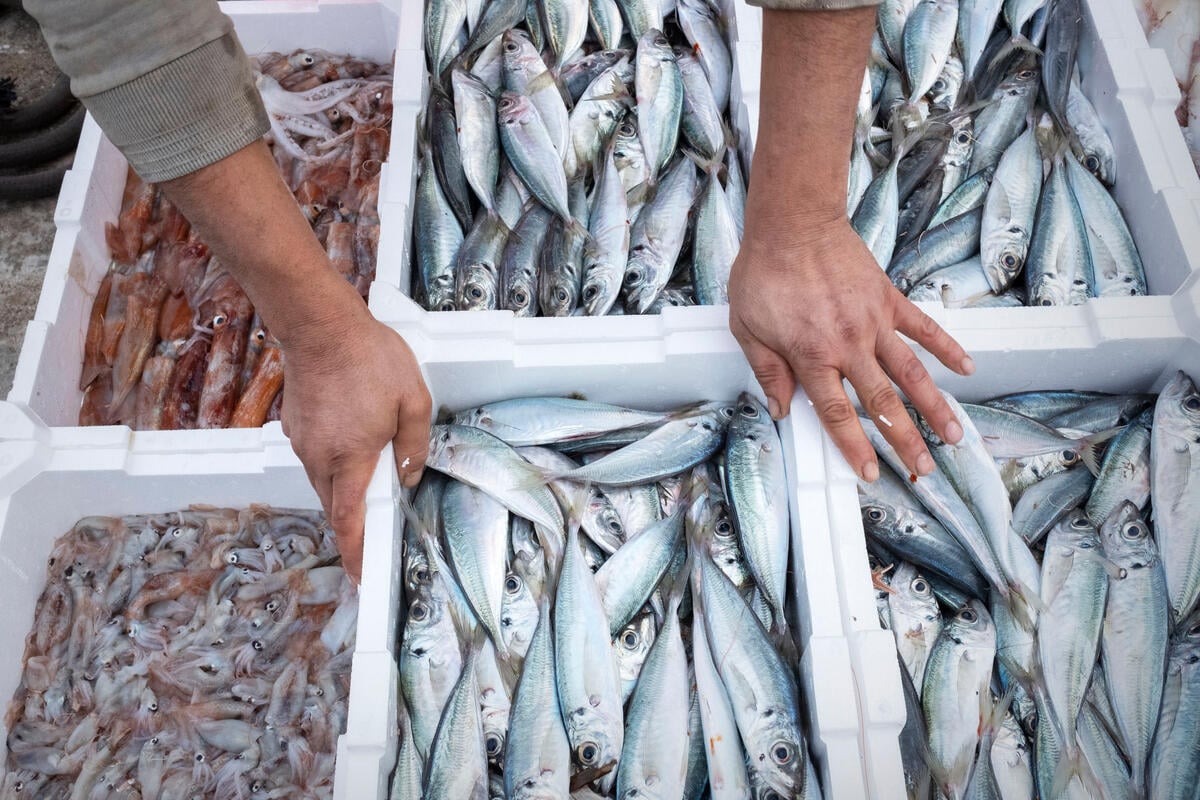May 27, 2025 | 06:27 GMT +7
May 27, 2025 | 06:27 GMT +7
Hotline: 0913.378.918
May 27, 2025 | 06:27 GMT +7
Hotline: 0913.378.918

China’s decision to become a Party to the PSMA is a significant development in the implementation of the Agreement as it represents one of the most important fishing nations.
Efforts to combat illegal, unreported and unregulated (IUU) fishing have received a boost from the People's Republic of China, the world’s largest capture fisheries producer, which has become the 108th State to join the FAO Agreement on Port State Measures to Prevent, Deter and Eliminate Illegal, Unreported and Unregulated Fishing (PSMA).
The PSMA supports sustainable fisheries by ensuring that only legal, regulated and reported fish catches are landed in ports and eventually traded. It does this by enabling Parties to deny port entry or use of port to foreign vessels suspected of engaging in IUU fishing, thereby preventing catches from such illicit practices from reaching markets and consumers.
“China’s accession to the PSMA is a milestone in the global effort towards responsible governance and sustainable development of fisheries,” said QU Dongyu, the Director-General of FAO. “This step reflects the growing strong commitment of all the States that preceded and those who will follow China in joining hands to combat IUU fishing through the PSMA framework.”
Strength in numbers
China’s decision to become a Party to the PSMA is a significant development in the implementation of the Agreement as it represents one of the most important fishing nations.
According to FAO, China is the world’s top producer of aquatic animals in marine capture fisheries, accounting for around 15 percent of the global total in 2023. China’s fishing fleet is estimated to number more than 500 000 fishing vessels, 342 000 of which are motorized, placing it among the top three countries in terms of fishing capacity.
Prior to China, Ukraine and Saudi Arabia in March 2025 were the latest states to become a Party to the PSMA. Other states are at an advanced stage in acceding to the Agreement.
The number of Parties to the PSMA now stands at 82, including the European Union which is a Party on behalf of its Member States, bringing the total number of States that are now bound by the Agreement to 108. The PSMA has the highest rate of adherence of all international fisheries and ocean-related instruments.
The PSMA’s implementation is backed by complementary instruments, such as the Global Record of Fishing Vessels and the PSMA Global Information Exchange System (GIES), which help port State authorities verify vessel identities and share compliance information with port, flag and coastal States and other concerned entities. These technologies enable real-time, cross-border collaboration, ensuring that vessels engaging in IUU fishing can be tracked, enhancing global enforcement efforts to conserve marine ecosystems and ensure sustainable fisheries.
About the PSMA
The PSMA entered into force in 2016. Parties meet every two years to discuss and take decisions on its implementation, and identify ways to increase its effectiveness in combatting IUU fishing. The Fifth Meeting of the Parties is scheduled to take place from 21 to 25 April, in Manta, Ecuador.
(FAO)

(VAN) The mutual export of agrifood products between the European Union (EU) and the United Kingdom (UK) must occur again without certification, border controls or other red tape. This was agreed at the UK-EU summit.
/2025/05/22/5121-2-173645_677.jpg)
(VAN) NBSAP Tracker identifies strengths and areas for improvement in the National Biodiversity Strategy, based on each region’s priorities and capacities.

(VAN) The draft amendment to the Circular on rice export trading stipulates a periodic reporting regime for rice exporting enterprises.

(VAN) Dong Thap farmers attained an average profit margin of 64% during the summer-autumn 2024 crop (first season), while An Giang and Kien Giang farmers followed with 56% and 54%, respectively.

(VAN) As a doctoral student doing research on renewable energy and electrification at Harvard University, the author shares his musings on electricity, nature, and countryside memories.

(VAN) The decree on Extended Producer Responsibility (EPR) ensures transparent management and disbursement of support funds, avoiding the creation of a “give-and-take” mechanism.

(VAN) Hue City rigorously enforces regulations regarding marine fishing and resource exploitation, with a particular emphasis on the monitoring of fishing vessels to prevent illegal, unreported, and unregulated (IUU) fishing.